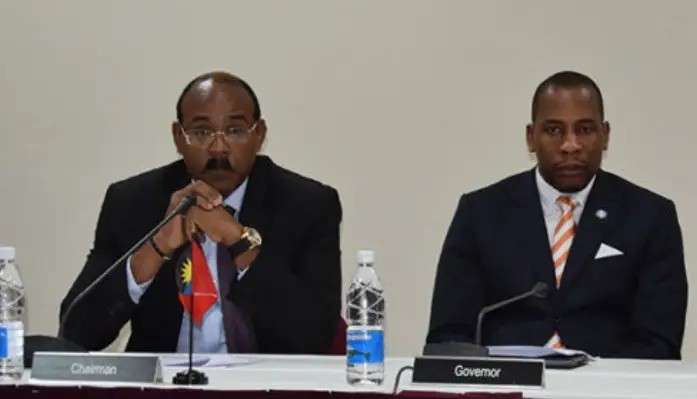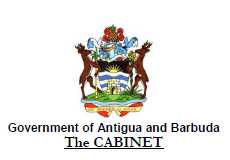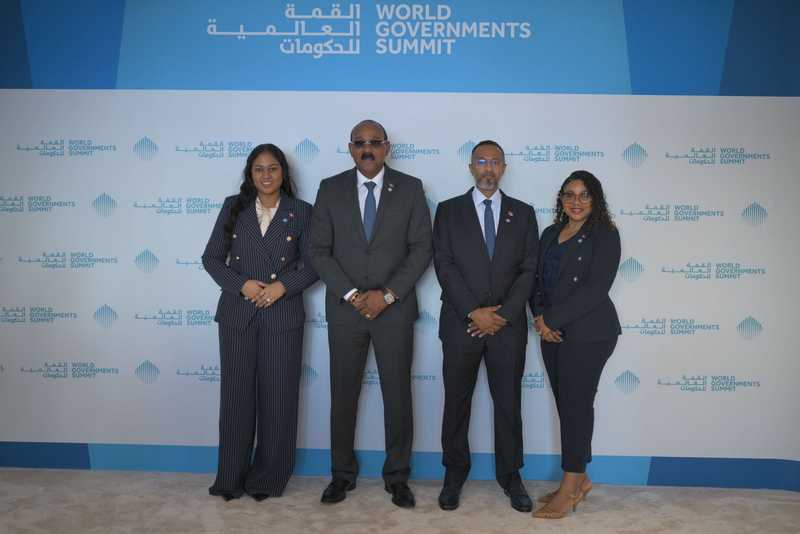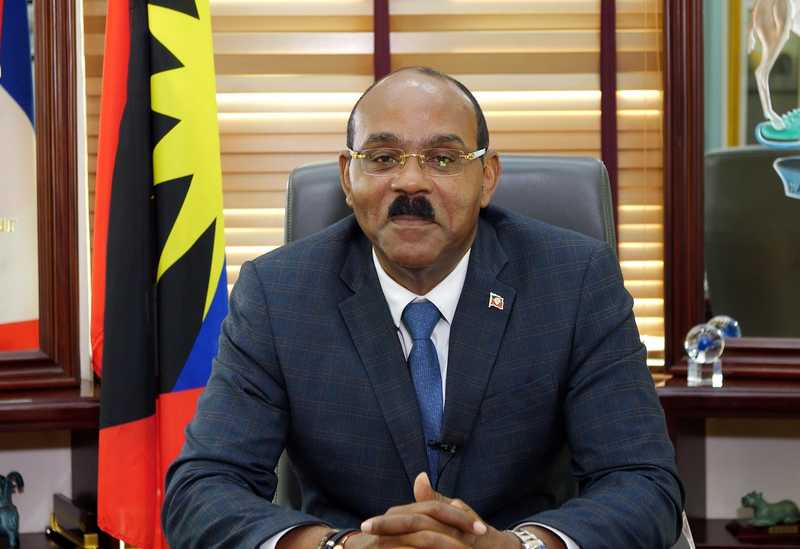Statement by the Honourable Gaston Browne
Prime Minister of Antigua and Barbuda
and Chair of the CARICOM Heads of Government
at a Special Session of the Permanent Council
of the Organization of American States
commemorating the 20th Anniversary of the signing of
the Inter-American Democratic Charter
on Friday, 17th September 2021
Mr. President of the Permanent Council
Honourable Ministers of Government
Secretary-General Luis Almagro
Assistant Secretary-General Nestor Mendez
Your Excellencies
Beyond any doubt the adoption of the Inter-American Democratic Charter (IADC) in Lima, Peru, on September 11, 2001, was a monumental step toward the prevention and management of democratic crises in the region.
The CARICOM group of countries was proud to contribute greatly to the Charter’s adoption.
With very few exceptions, our countries have been examples for democracy, the rule of law, freedom of expression and respect for political and human rights.
We treasure these values because throughout our history of slavery, indentured labour and exploitation, we fought for them at the expense of generations of our peoples’ lives.
We recall, Mr Chairman, that OAS member states were catapulted into fashioning the Charter in 2001 because of Peru’s experience with authoritarianism, and the government’s attempt to maintain power by undermining constitutional institutions and committing human rights violations.
Those events represented a new challenge for the Inter-American System which, until then, had experienced interruptions of democracy only by military coups.
Thus, we gave life to the Charter’s purpose, as set forth in its Article 19, to address the “alteration of the constitutional regime that seriously impairs the democratic order.”
It is right that, twenty years after its adoption, we should celebrate the Charter.
But it would be wrong not to point out the deficiencies in its application and not to commit to remedying them.
The Charter has, in recent years, been compromised by a political process of selecting some countries for its application but turning a blind eye to threats to the democratic order in others.
This Organization cannot expect the Charter to be respected if member states invoke it only when it suits the political interests of a few.
While we, as the OAS, must act vigorously to dissuade autocrats from undermining democracy in their countries, but we must act with objectivity, with balance and with fairness, or we will make a mockery of the Charter’s honorable purposes.
Mr Chairman, the other major deficiency in the application of the Charter is the failure by member states to give adequate recognition to the role of economic development in sustaining democracy.
It is very satisfying that Peruvian Ambassador, Manuel Rodriguez Cuadros, will also address this commemoration ceremony.
In 2001, as the then Ambassador to the OAS, he put forward the first draft of the Charter to the General Assembly.
Among its cogent arguments, the draft stated clearly “that the elimination of severe poverty is an essential part of promoting and consolidating democracy”.
Mr Chairman, while, over the last 20 years, progress has been made in the hemisphere in the areas of inclusion and tackling poverty, Articles 11 and 12 of the Charter remain neglected and cry out for urgent implementation.
I remind that the Articles state that “Democracy and social and economic development are interdependent and are mutually reinforcing” and that “OAS member states are committed to adopting and implementing all those actions required to generate productive employment, reduce poverty, and eradicate extreme poverty, taking into account the different economic realities and conditions of the countries of the Hemisphere”.
This deficiency must be fixed, and fixed now, or we will see no end to massive unemployment, no end to poverty, no end to crime and no end to refugees.
In the same year that our nations signed the Charter, Heads of Government at the Third Summit of the Americas in Quebec City, declared that HIV/AIDS was a major security threat to all our people.
They said that they were “united in their resolve to adopt multi-sectoral strategies and to develop cooperation to combat this disease and its consequences”.
Yet, while the onset of the COVID-19 pandemic posed a far greater and comprehensive threat to the health, economic well-being and security of all our peoples, there was little cooperation and much selfish nationalism.
A few countries, including from within our own hemisphere, bought and hoarded almost all the vaccines, leaving little for others.
The grave consequences of that action now reverberate throughout the world, and now none of us are truly safe as the virus mutates and spreads, taking lives and ruining economies.
Thankfully, the United States is now making efforts to redress the balance but more needs to be done, and at a faster pace.
The problem of inequality within and between our countries should assume a more important place on our agenda.
We cannot celebrate the Charter by hailing parts of it while hiding the others.
Mr Chairman, when the Charter was signed the biggest problem facing our hemisphere was poverty and inequity.
The biggest problem facing our hemisphere today is still poverty and inequity.
It is in the positive transformation of people’s lives that democracy becomes meaningful, and rights become a reality for all.
We would best celebrate the Charter by ensuring that the next twenty years delivers its promise of democracy for all by implementing the integral development it so eloquently prescribes.
Let us celebrate the Charter by honouring and implementing all its noble goals in the interest of our people.
Thank you.




